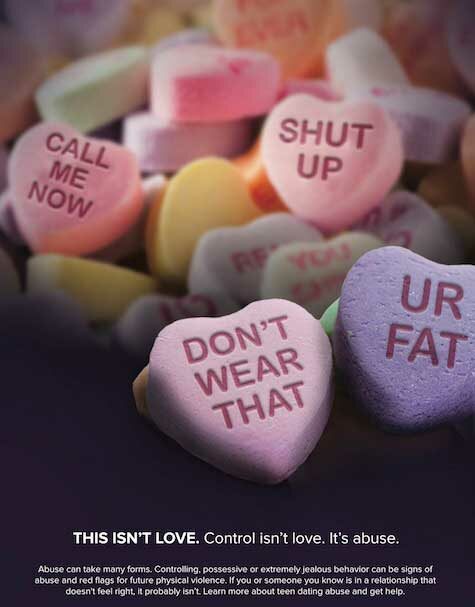
By: Liv Hayes, Family Development Coordinator
February is National Teen Dating Violence Awareness and Prevention Month. By joining together across the country, individuals and nonprofits work to raise awareness about the issue of teen dating violence and to focus on advocacy and education to stop dating abuse before it begins. In addition to negatively impacting teens, this issue affects families, schools and the community at large. Collectively, by increasing our awareness we can promote healthy and safe relationships for our teens.
Dating violence is more common than people think, especially among teens and young adults: one in three teens in the US will experience physical, sexual, or emotional abuse from someone they are in a relationship with before they become adults, and nearly half (43%) of college women report experiencing violent or abusive dating behaviors.
What is Teen Dating violence?

Teen dating violence (TDV) is a pattern of behavior that includes physical, emotional, verbal or sexual abuse used by one person in an intimate relationship to exert power and control over another.
What does Teen Dating Violence look like?
It can include emotional, verbal, physical and/or sexual abuse. In
most cases of TDV, violence is used to get another to do what he/she wants, to
gain power and control, to cause humiliation and to promote fear, and to
retaliate against a partner.
How does Teen Dating Violence differ from Adult Intimate Partner Violence?

Because the dynamics of intimate partner abuse are different in adolescent and adult relationships, it is important not to apply an adult framework of intimate partner violence to teen dating violence.
DoSomething.org, a global movement of millions of young people making positive change, online and off has compiled the below list of teen dating violence facts.
11 FACTS ABOUT TEEN DATING VIOLENCE
As a case manager for young pregnant and parenting mothers, I often see young women in unhealthy relationships. As part of the curriculum I offer, I work to educate these young women the importance of a healthy romantic relationship and understanding dating violence.
Additionally, I am able to work with these young mothers to provide healthy and effective parenting strategies.
If you are interested in learning more about the Care/AFL Program, please feel free to call me at: 578-6013 x 1607 or email me at olive.hayes@spart2.org.
If you or someone you know is experiencing Teen Dating Violence, feel free to call me (578-6013 x 1607) or email me: olive.hayes@spart2.org or contact Safe Homes Rape Crisis Coalition 1-864-583-9803 or 1-800-273-5066.
For great resources on talking to your children/teenagers about dating violence or getting involved in Teen Dating Violence Awareness Month, visit: Youth.gov